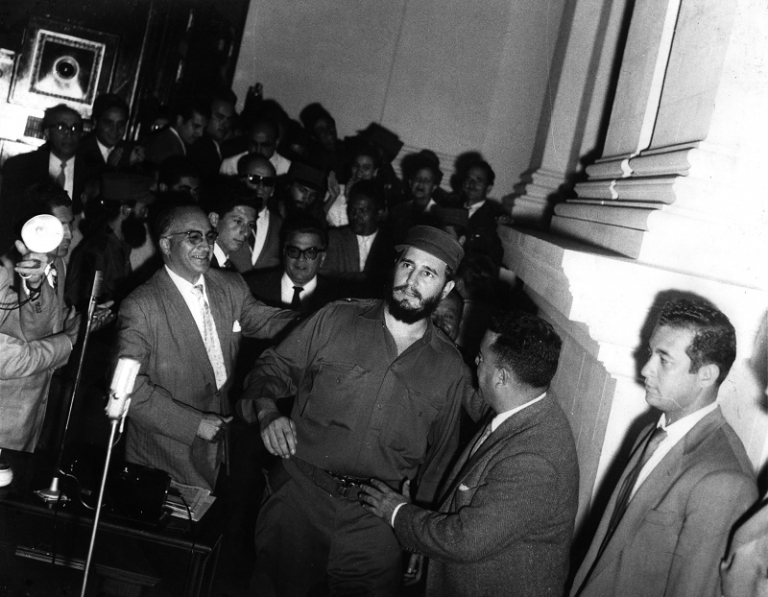
 Cubanet, Luis Cino, Havana, 23 January 2019 – Right around this time, 60 years ago, Fidel Castro was making his first visit to Venezuela, in what was also his first official foreign trip as ruler.
Cubanet, Luis Cino, Havana, 23 January 2019 – Right around this time, 60 years ago, Fidel Castro was making his first visit to Venezuela, in what was also his first official foreign trip as ruler.
Fidel arrived in Caracas on 23 January 1959, accompanied by a large delegation. It was only 15 days since the revolutionary leader’s entry into Havana a week after the dictator Fulgencio Batista fled from the country.
Absorbed in what he called “Operation Truth,” Fidel Castro — self-proclaimed prime minister as well as commander-in-chief — was trying to convince the world that reports about the summary trials and executions of hundreds of soldiers and police officers of the former regime were tall tales spun by the international (especially the American) press.
The visit to Venezuela ended up being a success, despite the bad omen of a tragic accident on the Maiquetía airport runway, when Francisco “Paco” Cabrera — a commander of the Cuban rebel army who was hurrying nervously to take his place as Fidel Castro’s bodyguard — was utterly decapitated by the airplane’s propeller.
In Venezuela — where exactly one year before, on 23 January 1958, a civil-military movement had overthrown the dictator Marcos Pérez Jiménez — the Cuban revolutionary leader was welcomed as an idol. A fascinated crowd listened, unwaveringly and enthusiastically, to the bearded revolutionary’s seven-hour-long speech.
Fidel Castro’s itinerary in Caracas was exhausting. But more exhausted were those individuals charged with protecting him, who — despite the warmth evinced by the Venezuelans — thought they detected potential assassins at every turn.
As can be seen in some photos taken by Raúl Corrales of the Cuban delegation, the Comandante’s bodyguards — all of them bearded and with a wild look about them in their slovenly, olive-green field uniforms, with weapons always close at hand — turned the Cuban embassy in Caracas into a replica of the guerrilla encampments of Cuba’s Sierra Maestra.
Some years later, after Fidel Castro would include his old host, President Rómulo Betancourt, in the list of his most hated enemies, the Venezuelans would again see Cuban soldiers — clean-shaven this time and on the warpath — landing around Machurucuto to penetrate the Falcón, Yaracuy and Lara mountains, where Arnaldo Ochoa, later executed by his Cuban bosses, earned his appointment as Deputy Commander of the General Army Staff of the Revolutionary Armed Forces
Who could have imagined that half a century after the disaster, Cuban military and security types, by the thousands, would be all over the place in Venezuela, providing consultation in the repression of dissidents, to shore up the shamelessly illegitimate regime of Nicolás Maduro?
Nobody could have known what Fidel Castro was referring to, in that seven-hour speech in Caracas, when he thanked the Venezuelans for the welcome they gave him and the weapons that Admiral Larrazábal had sent to the Sierra Maestra when, in turn, they had received nothing from him.
Forty years later, they would receive — besides subversion and guerrillas — they would receive his adoption of Hugo Chávez, who would turn Venezuela into the replacement for the Soviet Union to subsidize the Casto regime at its most critical moment.
Hugo Chávez’ ascent to the presidency following a failed coup attempt — and thanks to Venezuelans’ fatigue with the politicking and corruption of the Democratic Action and Copei partisans — was the consummation of Castroism’s conquest of Venezuela, which begin on 23 January 1959, when a smiling and friendly Fidel Castro stepped foot on the runway of the Caracas airport.
Translated by: Alicia Barraqué Ellison
